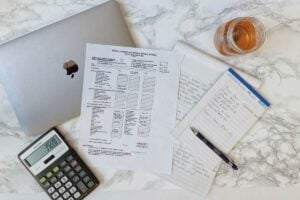Table of Contents

For many Ontarians, pensions are the cornerstone of retirement. After years of contributing to a workplace plan, CPP, or OAS, those monthly payments often represent the difference between financial stability and stress. It is normal to wonder: if you owe money, can creditors or the government take some of that income? The short answer: most pensions are protected from ordinary creditors. But there are important exceptions that can put retirement income at risk. Understanding these rules helps you plan ahead, protect your money, and avoid unpleasant surprises. If you are comparing ways to deal with debt, learn about a consumer proposal and bankruptcy to see which might fit your situation.
Why Pension Protection Matters
Unlike employment wages, pensions are often a retiree’s only source of income. If even a small portion is garnisheed, it can impact essentials like rent, groceries, or medical costs. While Ontario legislation shields pensions in most cases, not all debts are treated equally. Understanding who can collect helps you prepare and, if needed, get professional help before problems escalate. For context on paycheck deductions, see our guide to wage garnishment.Protection Under the Ontario Pensions Act
The Ontario Pensions Act protects registered pension plans from most unsecured creditors. This means if you owe money to a credit card company, payday lender, or other private creditor, they cannot directly garnishee your pension. The reason is simple: pensions are not considered “wages” under the Ontario Wages Act, which governs garnishment of employment income. Under the Pension Benefits Act, money payable under a pension plan is exempt from seizure.Key Exceptions You Need to Know
1. Canada Revenue Agency (CRA)
Tax debts are one of the biggest risks to pensions. The CRA has wide powers that allow it to collect without a court order. If you owe income tax, HST, or other federal debts, CRA can:- Deduct amounts directly from your Canada Pension Plan (CPP) or Old Age Security (OAS) before they are deposited.
- Redirect funds straight from your bank account once the pension arrives.
2. Family Support Obligations
If you are behind on child support or spousal support, the Family Responsibility Office (FRO) in Ontario can garnish up to 50 percent of your pension income. This limit is much higher than the standard 20 percent cap that applies to wages. Once FRO issues the order, deductions begin. See how FRO enforces support or review our process and FAQs.3. Bank Set-Off Rights
While outside creditors cannot touch your pension directly, your bank may have a unique advantage. If you owe money to the same financial institution where your pension is deposited, it can use a bank right of set-off to take funds from your account, including pension deposits, to cover overdue credit cards, lines of credit, or loan payments. If credit cards are part of the problem, start here: credit card debt.4. Overpayments of Benefits
Sometimes, retirees are paid more CPP or OAS than they were entitled to, often because of administrative errors. If this happens, the government can deduct the overpaid amount from future benefits. This repayment is permitted by law even when the error was not your fault.Once Pension Funds Are Deposited
Rules differ before and after a pension payment lands in your account:- Before deposit: Pension income is protected under the Ontario Pensions Act, subject to the exceptions above.
- After deposit: Pension money becomes regular funds in your bank account. Creditors with a court judgment may be able to seize the money. If you are weighing options, compare bankruptcy vs consumer proposal.
Practical Steps to Protect Your Pension
- File taxes on time. Even if you cannot pay, filing reduces penalties and interest.
- Separate banking relationships. Deposit pension income at a bank where you do not carry debt to reduce set-off risk.
- Stay current on support obligations. If behind, contact FRO to arrange payments before enforcement escalates.
- Review benefit statements. Watch for overpayments or errors and resolve them early.
- Get professional advice. Learn how a credit counselling session or a consumer proposal can protect pension income while you deal with debt.






Interaction with Social Assistance
People waiting for pension benefits may qualify temporarily for Ontario Works or ODSP. Once CPP or OAS payments begin, you may be required to repay assistance received during that waiting period. According to Ontario Works policy and ODSP directives, assistance payments are generally protected from seizure or garnishment, but repayment rules may apply when pensions start.